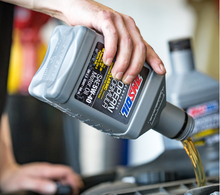Purchasing a home is one of the most significant investments you’ll make in your lifetime. Before you sign on the dotted line, it’s crucial to understand the condition of the property you’re buying. home inspectors Brighton CO play a vital role in this process, identifying potential issues that could affect your investment. In this guide, we’ll explore some common issues that home inspectors find, with a focus on crawl space vapor barriers and other crucial aspects.
Why Home Inspectors Are Your Best Friend
Home inspectors are professionals who scrutinize a property’s condition to help you make an informed decision. Their job is to identify problems that might not be obvious during a casual viewing. Understanding what these issues are can save you from costly repairs and unexpected surprises after closing.
1. Foundation Issues: What Are the Red Flags?
1.1. Cracks in the Foundation
One of the most common problems home inspectors find is cracks in the foundation. These cracks can indicate serious structural issues, including settling or shifting of the foundation. Small, hairline cracks are often minor and can be repaired relatively easily, but larger cracks may require significant repairs.
1.2. Uneven Floors
Uneven or sloping floors can also be a sign of foundation problems. This can affect the overall stability of the house and lead to more extensive repairs if not addressed promptly.
2. Roof and Gutter Problems: What to Watch Out For
2.1. Missing or Damaged Shingles
Roof inspections are crucial, as damaged or missing shingles can lead to leaks and water damage. Inspectors will check for signs of wear and tear, ensuring that the roof provides adequate protection for the home.
2.2. Gutter Issues
Clogged or damaged gutters can cause water to pool around the foundation, leading to potential damage. Home inspectors will assess the condition of the gutters and downspouts to ensure they are functioning correctly.
3. Electrical Systems: Common Deficiencies
3.1. Outdated Wiring
Older homes often have outdated wiring that may not meet current safety standards. Inspectors will check for any outdated electrical systems, such as knob-and-tube wiring, which could be a fire hazard.
3.2. Overloaded Circuits
Overloaded circuits can lead to electrical fires. Home inspectors will look for signs of overloaded circuits and recommend necessary upgrades to ensure safety.
4. Plumbing Problems: What Inspectors Look For
4.1. Leaky Pipes
Leaky or corroded pipes can lead to significant water damage and mold issues. Inspectors will examine the plumbing system to identify any leaks or signs of deterioration.
4.2. Water Heater Condition
A home inspector will also check the condition of the water heater, ensuring it operates efficiently and is in good repair.
5. HVAC Systems: Ensuring Proper Function
5.1. Inefficient Heating/Cooling
Inspectors will assess the HVAC system for efficiency and functionality. Issues such as an old furnace or air conditioner can lead to increased energy bills and discomfort.
5.2. Ductwork Issues
Problems with ductwork can affect the overall efficiency of the HVAC system. Inspectors will check for any leaks or blockages in the ductwork.
6. Crawl Space Concerns: Why Vapor Barriers Matter
6.1. The Role of Crawl Space Vapor Barriers
A crawl space vapor barrier is essential for preventing moisture from seeping into the crawl space, which can lead to mold growth and structural issues. Home inspectors will evaluate the presence and condition of these barriers to ensure they are adequately installed.
6.2. Moisture and Mold
will look for signs of excess moisture and mold in the crawl space. A proper vapor barrier can help prevent these issues, protecting the home’s structural integrity and indoor air quality.
7. Windows and Doors: Common Issues
7.1. Drafts and Seals
Home inspectors will check for drafts around windows and doors, which can lead to energy loss and increased utility bills. They will also inspect the seals to ensure they are intact and functional.
7.2. Broken or Malfunctioning Mechanisms
Inspectors will test the mechanisms of windows and doors to ensure they open and close properly. Broken mechanisms can affect security and energy efficiency.
8. Insulation Issues: Ensuring Energy Efficiency
8.1. Inadequate Insulation
Inadequate insulation can lead to heat loss and higher energy bills. Home inspectors will check the insulation in the attic and walls to ensure it meets current standards.
8.2. Insulation in the Crawl Space
Proper insulation in the crawl space is crucial for maintaining consistent temperatures and preventing moisture issues. Inspectors will assess the insulation and recommend upgrades if necessary.
Conclusion
Understanding the common issues that home inspectors find can help you make an informed decision when purchasing a home. From foundation problems to crawl space vapor barrier Longmont CO, being aware of these potential issues allows you to address them before closing. A thorough inspection can reveal critical information about a property’s condition, ensuring that you are making a sound investment.
By working with experienced home inspectors and addressing any identified issues, you can avoid costly repairs and enjoy peace of mind in your new home. Always remember to review the inspection report carefully and consult with professionals to address any concerns before finalizing your purchase. With the right preparation, you can protect your investment and move into your new home with confidence.


